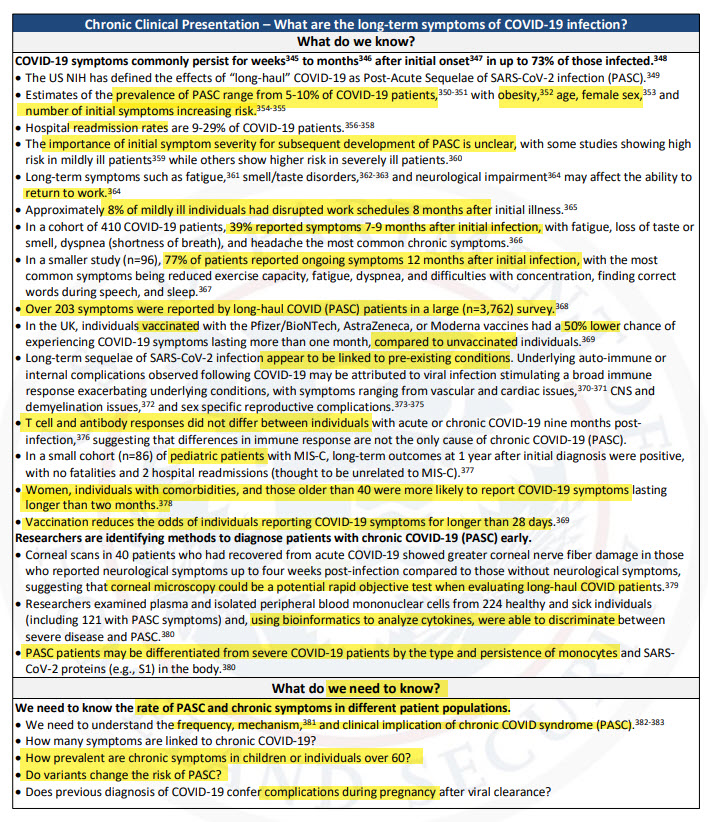May 20 Q & A: Round up the usual suspects
StudyLTCOVID.com
Thanks for visiting!
To translate this page, select your
language from the dropdown menu below:
"Long-term" COVID-19 may still be thought of as a new illness by many, caused by a "novel" coronavirus, though its existence can now be measured in years.
Clearly, it is not the first human illness studied. But approximately 100 articles concerning this viral illness are being published each day! The format for studying an illness was developed in Medicine over the centuries, but continues to evolve.
Such formats for presenting and learning about an illness will vary from infectious diseases to cancers, among others illnesses, but will nevertheless if successful find commonality.
And as we ponder Questions about "Long-term" COVID-19, perhaps we should
begin with "round up the usual suspects." (a phrase spoken by the character "Captain Reynaud" in the final scene of the movie Casablanca).
What are the 'usual suspects' or components that recur in the description of any illness?
Before trying to first formulate then share our answers with others, what might the context for such a Question & Answer session for this viral infectious disease and its "long-term" effects look like?
Perhaps this ...
(Suggestion: click the little box on the lower right to watch full screen).
Of course, formulating answers to questions about COVID-19 and "long-term" COVID, supposes keeping up with the literature so answers are accurate.
Not an easy feat, as this Science article informs.
"By one estimate, the COVID-19 literature published since January has reached more than 23,000 papers and is doubling every 20 days—among the biggest explosions of scientific literature ever.
Given that volume, "People don't have time to read through entire articles and figure out what is the value added and the bottom line, and what are the limitations," says Kate Grabowski, an infectious disease epidemiologist at Johns Hopkins University's (JHU's) Bloomberg School of Public Health who is leading an effort to create a curated set of pandemic papers."
Yet an overall sense of the characteristics of this illness may still be grasped and shared with others.
Perhaps surprising as a source of information for the public, the U.S. Department of Homeland Security lists COVID-19 as a threat to that security. It's DHS Science and Technology summary for defining that threat is quite complete, and perhaps most useful, it presents what is known, and also what is still to be learned. The Master Question List for COVID-19, a Monthly Report was last updated here on 11 January, 2022.
Here from that list is a one page summary on "long-term" COVID-19, (with our highlights):
Here below ia another resource that appeared more recently, but takes us away just a bit, from the "long-term" variety of the illness. Still a good source of information to share about the acute illness.
"CombatCOVID.hhs.gov is a one-stop location for the latest on preventing and treating COVID-19. The website offers resources for the public, healthcare providers, and public health professionals. You can also learn about clinical trials for COVID-19 prevention and treatments, and options for monoclonal antibody treatment. Visit Combat COVID to learn how you can help us all fight COVID-19."
Again, the information presented at that government site is quite centered on treatments for COVID-19, and less on defining the entity with is "long-term" COVID-19.
In light of these huge collections of information, our Question & Answer session on May 20 (2022) will of necessity be less complete and certainly not exhaustive. (Perhaps it should be a continuous week-long Podcast?)
Nevertheless, if the public who attends still has questions about "long-term" COVID-19, they merit being aired and answered. I think that just defined our goal or mission statement forthis presentation, May 20. (Times still to be arranged and updated here).

